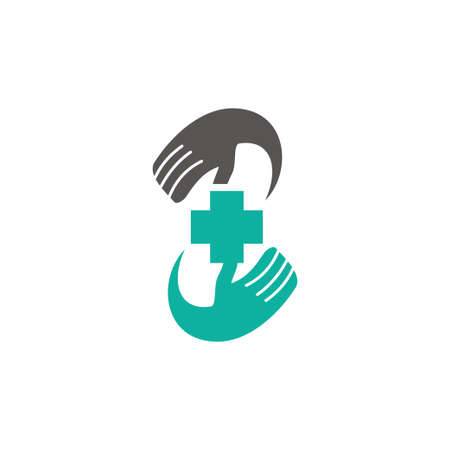Overview of Substance Addiction in India
Substance addiction is a significant public health concern across India, affecting individuals and families from diverse socio-economic backgrounds. The prevalence of addiction varies across states and communities, with alcohol, tobacco, cannabis, opioids, and pharmaceutical drugs being the most commonly abused substances. According to recent government surveys, millions of Indians are struggling with substance dependency, particularly among the youth and marginalized populations. Cultural factors play a crucial role in shaping attitudes towards addiction; in some regions, traditional practices and social norms may either discourage or inadvertently encourage substance use. For instance, while alcohol consumption may be socially accepted at festivals in certain states like Punjab or Goa, it remains taboo in others such as Gujarat. Additionally, issues like unemployment, migration, urbanization, and family stress contribute to the growing challenge of addiction. Recognizing these complexities is essential for designing effective support services and government schemes tailored to the needs of different Indian communities.
2. Government Policies and Legal Framework
India has developed a robust policy and legal framework to address the complex issue of addiction. The government recognises addiction as a public health and social challenge, and multiple ministries—including the Ministry of Social Justice & Empowerment, Ministry of Health & Family Welfare, and Ministry of Home Affairs—work together to provide an integrated approach towards prevention, treatment, rehabilitation, and social reintegration for addiction victims.
Key Legislation: NDPS Act
The central piece of legislation is the Narcotic Drugs and Psychotropic Substances (NDPS) Act, 1985. This Act lays down strict laws against the production, trafficking, and consumption of narcotic drugs and psychotropic substances in India. At the same time, it also recognises the need for medical care and rehabilitation for individuals struggling with substance use disorders. Amendments over the years have aimed to shift focus from punitive measures towards a more compassionate approach for victims of addiction.
Main Features of NDPS Act Relevant to Addiction Victims
| Provision | Description |
|---|---|
| Section 64A | Provides immunity from prosecution to addicts volunteering for treatment at government-approved centres |
| Section 39 | Court may divert convicted addicts to de-addiction centres instead of prison |
| Section 71 | Empowers state governments to establish and maintain de-addiction centres |
| Amendments (2014) | Enhanced access to essential medicines for medical use; increased focus on harm reduction strategies |
Regulatory Bodies Overseeing Implementation
- National Drug Dependence Treatment Centre (NDDTC), AIIMS: Provides technical support and research for drug dependence treatment programmes across India.
- National Institute of Social Defence (NISD): Functions under Ministry of Social Justice & Empowerment as a nodal agency for policy formulation, training, and monitoring schemes related to substance abuse prevention.
- Narcotics Control Bureau (NCB): Enforces drug laws but also coordinates rehabilitation efforts through various schemes in partnership with other agencies.
Integration with State-Level Initiatives
State governments have their own rules aligned with the NDPS Act and run dedicated State Mental Health Authorities (SMHAs) and Drug De-Addiction Centres (DDACs). These local bodies play a critical role in implementing national policies on-ground while adapting them according to regional requirements. Collaboration between central and state agencies ensures that support services reach diverse populations across urban and rural areas.
Cultural Sensitivity in Policy Implementation
The Indian government acknowledges the diversity of its population. Hence, policies are tailored to be culturally sensitive by involving local NGOs, religious leaders, Panchayati Raj Institutions, and community-based groups in awareness campaigns and service delivery. This inclusive approach helps reduce stigma around addiction and makes support services more accessible to those in need.

3. Central Government Schemes for Addiction Recovery
National Action Plan for Drug Demand Reduction (NAPDDR)
The Government of India has launched several flagship schemes to address the challenge of substance abuse and support addiction victims. The National Action Plan for Drug Demand Reduction (NAPDDR) is one of the most significant initiatives implemented by the Ministry of Social Justice and Empowerment. This scheme aims to prevent drug abuse, provide rehabilitation services, and integrate recovered individuals back into society. NAPDDR covers multiple interventions, including awareness campaigns in schools and colleges, capacity building for service providers, community-based peer-led outreach, and vocational training to empower those affected.
Support Provided Under NAPDDR
Through NAPDDR, the central government supports a nationwide network of Integrated Rehabilitation Centres for Addicts (IRCAs), which offer medical treatment, counseling, detoxification, and aftercare services. Financial assistance is provided to NGOs and voluntary organizations running these centres across urban and rural areas of India. Additionally, the scheme funds preventive education programmes and skill development workshops that help individuals reintegrate with their families and communities post-recovery.
Eligibility Criteria
To avail benefits under NAPDDR schemes, individuals must be identified as substance users or those at risk within their local community. NGOs seeking financial support need to be registered under relevant Indian laws and must demonstrate experience in addiction recovery or social welfare activities. The eligibility also includes compliance with government guidelines on service delivery, regular reporting, and maintaining transparency in operations.
4. State-Level Initiatives and Special Programmes
India’s vast geographical and cultural diversity has led to the development of state-specific addiction recovery schemes, helplines, and intervention programmes tailored to regional needs. While the central government provides broad guidelines and funding, individual states often introduce additional measures to address local challenges related to substance abuse.
Unique State-Run Schemes for Addiction Recovery
Many Indian states have implemented innovative policies and support services to supplement national efforts. These initiatives are designed with a deep understanding of local demographics, substance use patterns, and socio-economic factors. For example, Punjab, facing a severe opioid crisis, launched the “Punjab Drug Rehabilitative Programme” focusing on community-based rehabilitation centres and special youth outreach teams. Similarly, Kerala’s “Substance Use Prevention and Rehabilitation Programme” integrates addiction management into primary healthcare for early identification and intervention.
State Helplines and Support Hotlines
Recognising the importance of immediate assistance, several states operate dedicated helplines offering guidance in regional languages. These helplines connect individuals with trained counsellors and facilitate referrals to nearby de-addiction centres. Below is a table summarising some key state-level helpline services:
| State | Helpline Number | Languages Supported |
|---|---|---|
| Maharashtra | 1800-222-222 | Marathi, Hindi, English |
| Tamil Nadu | 104 | Tamil, English |
| Punjab | 181 | Punjabi, Hindi, English |
| Karnataka | 1098 (Childline), 080-22221111 (Adult) | Kannada, English |
Diverse Regional Interventions
The approach to addiction management varies considerably across states. In North-Eastern states like Assam and Manipur, community-driven interventions involving NGOs and tribal councils play a vital role in outreach and rehabilitation. States such as Gujarat have established mobile de-addiction clinics to reach rural populations where access to fixed facilities is limited. In metropolitan regions like Delhi and Mumbai, public-private partnerships ensure that urban slum dwellers receive both preventive education and treatment options.
Collaboration with Local Stakeholders
Many state governments collaborate with Panchayati Raj institutions, women’s self-help groups (SHGs), and religious organisations to enhance the reach of their programmes. These partnerships ensure culturally sensitive interventions that respect local traditions while promoting scientific approaches to addiction recovery.
Overall, India’s state-level initiatives reflect a deep commitment to addressing addiction through regionally relevant solutions that blend clinical expertise with community participation.
5. Role of De-Addiction and Rehabilitation Centres
De-addiction and rehabilitation centres play a pivotal role in supporting individuals struggling with substance abuse across India. The Ministry of Social Justice and Empowerment, along with several state governments, recognises and supports numerous de-addiction centres under the National Action Plan for Drug Demand Reduction (NAPDDR). These government-recognised centres are committed to providing evidence-based treatment and holistic care for addiction victims, ensuring their reintegration into mainstream society.
Services Offered by Government-Recognised Centres
The core services provided at these centres include medical detoxification, individual and group counselling, psychiatric evaluation, vocational training, and aftercare planning. Many facilities also offer yoga therapy, meditation sessions, and family counselling, aligning treatment modalities with Indian cultural values. Additionally, awareness programmes and community outreach initiatives help in destigmatising addiction and encouraging affected families to seek help without hesitation.
Accessing De-Addiction Services
To access these services, individuals or their families can approach the nearest district hospital or Primary Health Centre (PHC), where they will be guided towards government-approved de-addiction centres. The Ministry of Social Justice and Empowerment’s website provides a state-wise directory of recognised facilities. Toll-free helplines such as 14446 (Nasha Mukt Bharat Abhiyaan) are available in multiple Indian languages to assist people in need of immediate support or information about nearby rehabilitation services.
Community Participation and Follow-up Care
Active involvement from panchayats, NGOs, and self-help groups ensures that recovery is sustained even after discharge from the centre. Regular follow-up visits, continued counselling, and skill-building workshops help prevent relapse and empower individuals to lead productive lives. In summary, government-backed de-addiction and rehabilitation centres serve as crucial pillars in India’s fight against substance abuse, offering accessible, culturally-sensitive care for all sections of society.
6. Community Support and NGOs
The Role of NGOs in Addiction Recovery
Non-Governmental Organisations (NGOs) play a pivotal role in India’s fight against addiction. While government schemes such as Nasha Mukt Bharat Abhiyaan provide policy frameworks and funding, the actual implementation and last-mile delivery often depend on NGOs. These organisations, rooted in local communities, understand regional socio-cultural dynamics and can offer customised interventions such as counselling, rehabilitation, awareness campaigns, and vocational training for victims of substance abuse.
Panchayats: Grassroots Governance & Support
In rural India, Panchayats serve as the backbone of community-based support systems. Empowered under various government schemes, Panchayati Raj Institutions facilitate access to health services, organise anti-addiction drives, and mobilise community resources for prevention and rehabilitation. Their trusted status within villages enables them to break stigma and encourage affected individuals to seek help without fear of social ostracism.
Self-Help Groups: Peer-Led Change
Self-help groups (SHGs), particularly those formed under initiatives like the National Rural Livelihood Mission (NRLM), act as critical support networks for addiction victims. These groups foster peer accountability, provide emotional backing, and sometimes offer micro-financial assistance for recovery efforts. SHGs also conduct regular meetings to educate members about substance abuse, share success stories, and work closely with local health workers to ensure continuity of care.
Bridging Gaps in Rural Areas
The synergy between government agencies, NGOs, Panchayats, and self-help groups is especially significant in rural settings where formal healthcare infrastructure may be limited. By leveraging cultural familiarity and community trust, these grassroots actors can identify at-risk individuals early and connect them with appropriate government-run de-addiction centres or helplines.
Overall, the collective action of NGOs, Panchayats, and SHGs not only supplements government efforts but also ensures that addiction recovery is holistic, culturally sensitive, and sustainable—helping victims reclaim their lives with dignity.
7. How to Access Government Support Services
Accessing government schemes and support services for addiction victims in India can seem complex, but there are practical steps that individuals and families can take. Understanding the process will help you or your loved one make the most of available resources.
Step-by-Step Guidance on Navigating the System
Start by identifying which government scheme or support service is most relevant—whether it is de-addiction centres, counselling services, or financial assistance under schemes like Nasha Mukt Bharat Abhiyaan. Visit your nearest District Hospital, Government Medical College, or authorized NGOs listed on the Ministry of Social Justice and Empowerment website. Inquire about the specific eligibility criteria and required documentation, such as Aadhaar card, medical records, or income certificate.
How to Apply for Government Schemes
Applications for most schemes can be submitted either in person at designated government offices or online through official portals like socialjustice.gov.in. Ensure all documents are attested. For rural areas, approach Panchayat offices or community health workers (ASHA/ANM) for guidance. Always request a receipt or acknowledgement after submitting your application.
Key Contact Numbers and Helplines
- National Toll-Free Drug De-Addiction Helpline: 1800-11-0031 (Available 24×7 in Hindi, English, and regional languages)
- Nasha Mukt Bharat Abhiyaan Helpline: 14446
- Mental Health Helpline (KIRAN): 1800-599-0019
You may also contact State Social Welfare Departments for localized support or reach out to leading NGOs like SPYM, TTK Hospital Chennai, or NIMHANS Bangalore for further assistance.
Tips for Families Supporting Addiction Victims
- Stay involved in the recovery process—accompany your family member during hospital visits or while accessing government offices.
- Encourage participation in group therapy sessions offered by government-funded centres.
- If you face language barriers, request for support in your regional language at helplines or service points.
- Create a supportive home environment; avoid blame and practice patience during recovery.
By following these steps and utilizing the provided contacts, both victims and their families can more confidently access the full range of government schemes and support services available across India.


